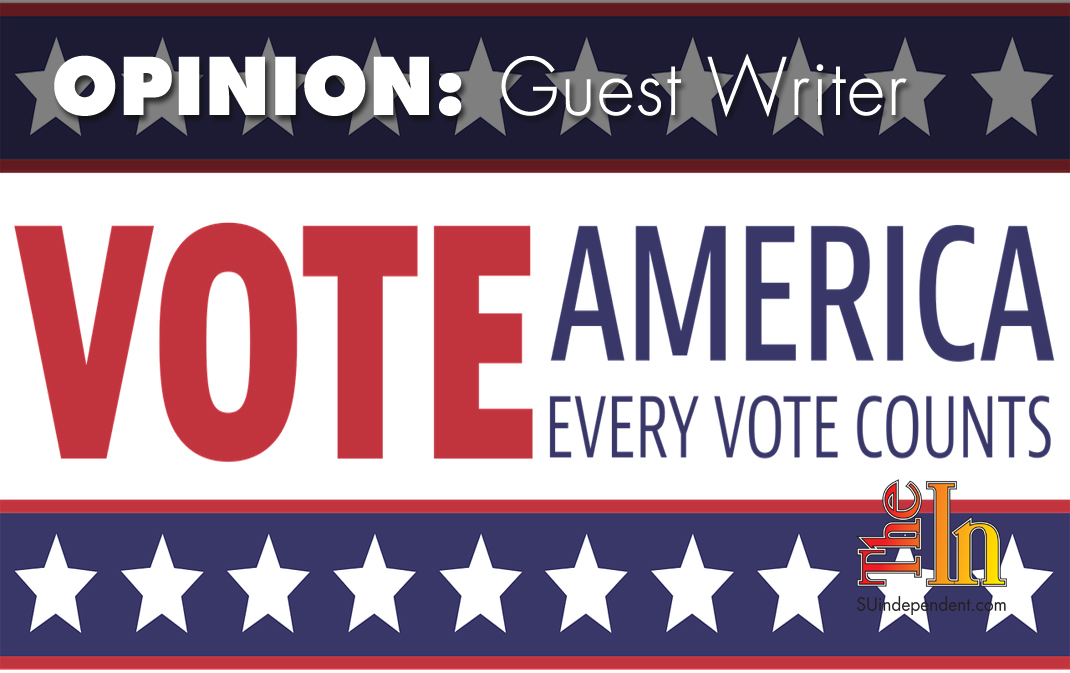
Support the For the People Act
By Graham West
Earlier this month, House Democrats passed their first piece of flagship legislation: H.R. 1, otherwise known as the For the People Act. It is a comprehensive package aimed at achieving bipartisan goals — namely, more accountability and less money in our politics.
It requires states to offer automatic voter registration, stops voter roll purging, and makes Election Day a federal holiday — all of which will make voting easier for everyone. It funds a public financing program for candidates, aiding those who run for office but are not independently wealthy or corporately backed. It demands transparency from super PACs on their donors and tech companies on who pays for the ads they run, which will let us see who is spending to influence our politics. And it calls for more poll workers and election security measures in 2020, which will make our voting experience smoother and more secure.
But the bill’s positive effects aren’t limited solely to election reforms. Among other things, it also increases oversight over foreign lobbying. It stops members of Congress from using taxpayer dollars to settle sexual harassment claims. It fights partisan gerrymandering. It proposes an ethics code for the U.S. Supreme Court. And yes, it requires the sitting president and vice president to disclose their tax returns, a 50-year norm in American politics only recently defied.
These are not partisan measures. They are things all Americans can and should support. Ample polling data against money in politics and corruption, both opposed mightily by Democratic and Republican voters alike, back that up. But we don’t need survey results to tell us what we already know! Access to voting is good; foreign and corporate influence is not. Transparency and ethics are right; hiding misdeeds from the citizenry is wrong.
Senate Majority Leader Mitch McConnell appears to disagree. He has already assured that H.R. 1 won’t get a vote in the U.S. Senate because, in his own childish words, “I get to decide what we vote on.”
McConnell has chosen to smear the For the People Act as the “Democrat Politician Protection Act.” Normally in politics and communications, it’s a bad strategy to repeat your opponent’s arguments. But it’s worth taking a look at how he opposes the For the People Act, because the arguments (made in a Washington Post op-ed shortly after the bill was revealed) don’t hold up well.
McConnell attacks a proposed change to the Federal Elections Commission, but it’s actually just a move designed to break partisan gridlock. He pretends that the act is an assault on free speech, but it’s the “speech” — that is, money — being spent by shady super PACs and corporations that is in need of regulation, not the rights of American citizens. He accuses the above-mentioned match program of robbing taxpayers when its funding would actually come from a pool of fines imposed for corporate wrongdoing. And most hilariously, he wails that making Election Day a federal holiday is a giveaway to greedy federal workers (those same workers who McConnell allowed President Trump to deprive of paychecks for a historically long shutdown), as if that measure doesn’t help all Americans vote.
In short, McConnell’s arguments, like so many he has made throughout his career, are not made in good faith. They do not address how getting money out of politics and improving transparency, accountability, and access to voting are bad things, because they aren’t. Instead, the reforms of the For the People Act are common sense measures that all Americans can support.
Members of Congress, even in McConnell’s Senate where he “gets to decide” what they vote on, should hear as much from their constituents.
The viewpoints expressed above are those of the author and do not necessarily reflect those of The Independent.
How to submit an article, guest opinion piece, or letter to the editor to The Independent
Do you have something to say? Want your voice to be heard by thousands of readers? Send The Independent your letter to the editor or guest opinion piece. All submissions will be considered for publication by our editorial staff. If your letter or editorial is accepted, it will run on suindependent.com, and we’ll promote it through all of our social media channels. We may even decide to include it in our monthly print edition. Just follow our simple submission guidelines and make your voice heard:
—Submissions should be between 300 and 1,500 words.
—Submissions must be sent to editor@infowest.com as a .doc, .docx, .txt, or .rtf file.
—The subject line of the email containing your submission should read “Letter to the editor.”
—Attach your name to both the email and the document file (we don’t run anonymous letters).
—If you have a photo or image you’d like us to use and it’s in .jpg format, at least 1200 X 754 pixels large, and your intellectual property (you own the copyright), feel free to attach it as well, though we reserve the right to choose a different image.
—If you are on Twitter and would like a shout-out when your piece or letter is published, include that in your correspondence and we’ll give you a mention at the time of publication.
Articles related to “Support the For the People Act”
Voter fraud, Wikileaks, and cocaine: Debunking Clay Jones’ liberal propaganda, part 2
Billionaire Tom Steyer replaces Soros as prominent leftist funder



